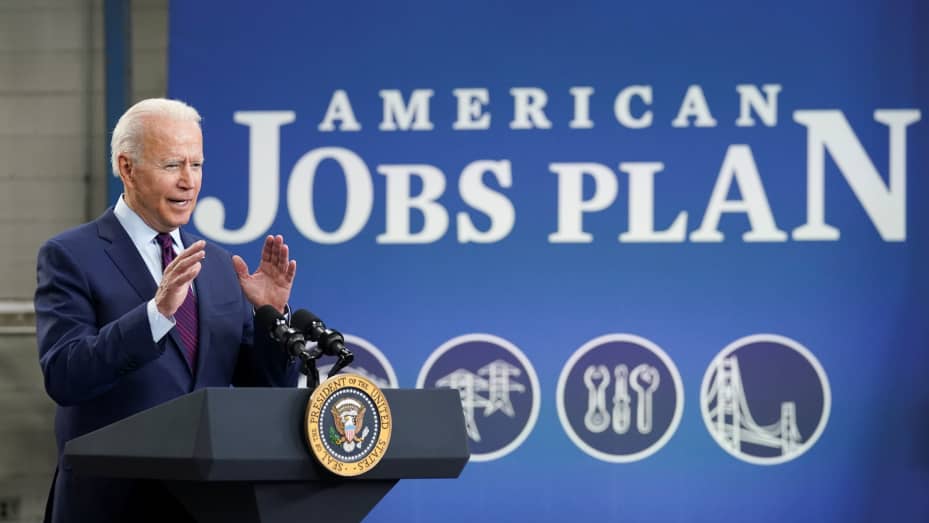 A bipartisan infrastructure deal reached by President Joe Biden and a group of senators would not only add to economic growth, but also lower the national debt, according to a new study from the University of Pennsylvania’s Wharton School.
A bipartisan infrastructure deal reached by President Joe Biden and a group of senators would not only add to economic growth, but also lower the national debt, according to a new study from the University of Pennsylvania’s Wharton School.
Researchers at the Wharton School said the additional $579 billion in new infrastructure spending would increase domestic output by 0.1% and decrease the U.S. debt by 0.9% by 2050.
“Over time, as the new spending declines, IRS enforcement continues, and revenue grows from higher output, the government debt declines relative to baseline by 0.4 percent and 0.9 percent in 2040 and 2050 respectively,” the Wharton team wrote.
Speaking to CNBC on Tuesday, Wharton senior economist Jon Huntley said improvements to public capital (roads, bridges and other physical infrastructure) makes private capital (trucks and trains hauling goods for companies) more productive over time. Fewer potholes and rail service interruptions, when summed over years, increase U.S. economic activity and encourage further investment from the private sector.










